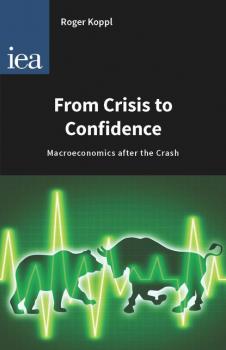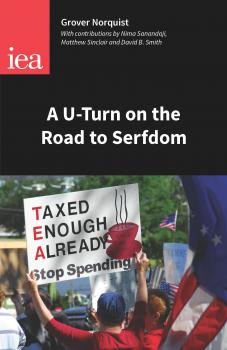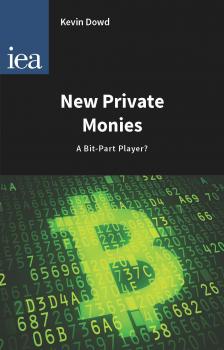ТОП просматриваемых книг сайта:
Hobart Papers
Скачать книги из серии Hobart PapersАннотация
From Crisis to Confidence not only describes the process which the economy must go through before a full recovery after the financial crash, it also describes the journey that must be travelled by the discipline of economics. As economics students and other commentators question post-war macroeconomics, Roger Koppl provides some of the answers needed to understand the long slump since 2008. A theory of confidence is needed in any economic framework that is to explain one of the most important periods in modern economic history.
Аннотация
This new version of ‘Advertising in a Free Society’ is valuable reminder of the fundamental role advertising plays in society. Although the criticisms aimed towards it, which Ralph Harris and Arthur Seldon aimed to dispel over half a century ago, continue to gain support, policy makers and campaigners risk undermining our freedom if they continue this crusade against the advertising industry. We should celebrate the fact that advertising empowers the everyday shopper, rather than undermining both businesses and consumers through constraining the industry.
Аннотация
This book suggests that drastic reforms are required to reverse the ever-increasing size of the state, a trend experienced in most western nations. The report proposes a reassessment of the scale of government to achieve a reduction in taxation and spending.
Информация о книге
Автор произведения Grover Norquist Glenn
Жанр Банковское дело
Серия Hobart Papers
Аннотация
This IEA publication deals head-on with a number of widely quoted myths about the market economy. In the case of the philosophical myths, such as the idea that economists believe that everybody is greedy, the author, Christopher Snowdon, carefully and entertainingly unpicks the misguided ideas that have taken hold. The author then moves on and effectively disposes of a number of economic myths using empirical evidence that is often ignored by commentators.
Аннотация
Kevin Dowd argues that states must allow a level playing field as far as private money is concerned. For too long the government has stifled competition between state-backed and private currencies. Instead, central banks should welcome competition as it forces them to offer consumers greater choice and improved quality. A weakened ability to store value, growing restrictions on finance, oppressive taxes and a lack of financial privacy have resulted in growing frustration at state controlled money. The superior nature of private currencies combined with the financial freedom they offer has led to their increasing attraction. Bitcoin enables its owners, among other things, to protect their wealth, make investments free from government control and retain a level of privacy, making it increasingly attractive. The price of Bitcoin rose from 3 cents in April 2010 when first traded, to over $900 in January 2014. The relationship between restrictions on individual freedom and demand for private money is also identified in the paper. The increasing constraints on personal freedom have led to private money becoming more and more popular as it enables people to do what would otherwise be illegal. The market for private monies will continue to thrive as long as states restrict and prohibit various forms of commerce.





